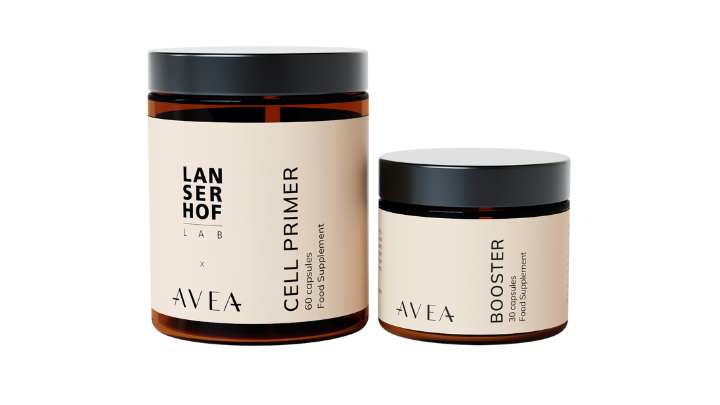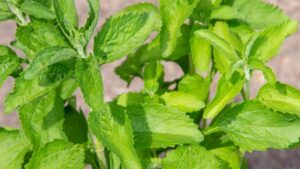As a passionate advocate for health, long-term goals, and success, you’d think you’ve got all the bases covered. After all, you’re someone who’s dedicated to not just enjoying life, but also enhancing its quality.
Yet, in the labyrinth of the many good habits you have, it’s surprisingly easy to overlook the bad ones. Here’s the secret to a healthier and happier life. It isn’t just in the lab or a pill bottle, but also in the daily routines we dismiss every day.
This Avea article aims to delve deep into the science behind the daily routines that we often ignore. What are habits for healthy ageing? the goods and the bads.
We’ve got some science-backed reasons that might convince even an experienced adult like you to reconsider some of your lifestyle choices.
In this article
Free guide to reverse your biological age

- Master the science of rejuvenation.
- Apply proven tips to turn back the clock.
- Transform your health with top longevity specialists.
What are habits?
Habits are the building blocks of our daily lives, shaping everything from our morning routines to our long-term goals. These repetitive behaviours can serve as a double-edged sword; there are good ones and there are bad ones.
Understanding the mechanics of habit formation can empower you to make more conscious choices, optimising your well-being for the long haul.
Learn more about habit formation here.
The bad habits for healthy ageing
1. The nighttime owl
Nighttime tranquility often feels like the perfect backdrop for creativity and productivity. While you may relish the uninterrupted focus, your body’s internal clock, or circadian rhythm, strongly disagrees.
Circadian rhythms regulate a variety of physiological processes, including sleep-wake cycles, hormone release, and even digestive functions. When these rhythms are thrown out of sync, the ripple effects can be far-reaching.
Night owls are more likely to develop diabetes, metabolic syndrome and sarcopenia than early risers, even when they get the same amount of sleep, according to a new study published in the Endocrine Society’s Journal of Clinical Endocrinology & Metabolism [1].
This misalignment of your internal clock can also mess with your cortisol levels, contributing to stress and inflammation, precursors to many age-related diseases.
So, while those late-night sessions might feel productive, they could be silently sabotaging your longevity from various angles. A shift towards aligning your daily routine with your body’s natural circadian rhythm may not only be beneficial but essential.
2. Chronic sitting
The modern work landscape, especially in fields that require long hours of focus in front of your laptop, glorifies long periods of sitting as a sign of dedication.
Truth be told, this “sitting culture” comes with hidden long-term costs that can counteract your efforts to lead a healthy and long life. Have you noticed your back pain recently?
A study published in the Annals of Internal Medicine has found that prolonged periods of sitting, irrespective of regular exercise, are associated with a significantly higher risk of heart disease, diabetes, and death from all causes [2].
It appears that the act of sitting itself initiates metabolic changes that promote the deposit of fats in the arteries, insulin resistance, and inflammation.
The message here is loud and clear: intersperse periods of sitting with physical activity, be it a quick walk, some light stretching, or even dancing to your favourite tune. To ensure you stand from time to time, get a standing desk or create your own diy one.
3. Excessive sugar intake
Ah, sugar—the sweet substance that makes bland food more palatable, but is really your worst enemy in your quest for longevity.
While we’re all familiar with the obvious sugar culprits like sweets and sugary drinks, sugar is also a chameleon, camouflaged in foods you might consider healthy or neutral.
Think low-fat yoghurts, granola bars, and even certain types of bread. These hidden sugars also go by names like agave nectar, high-fructose corn syrup, and evaporated cane juice, making them harder to spot.
Countless research published highlight that a high-sugar diet correlates with a greater risk of dying from heart disease, partly due to its role in inflammation and insulin resistance, both crucial factors in many age-related diseases [3].
To dodge this sugary pitfall, become a label detective to uncover hidden sugars, even those hiding under names like “organic cane sugar” or “maple syrup.” When choosing foods, favour natural whole fruits over processed alternatives like fruit juice.
Regarding beverages, opt for water, herbal teas, and other unsweetened options. Sidestep the unnecessary sugar in the sodas. For snacks, go for natural choices like nuts or vegetable sticks, which offer nutritional value without the sugar hit.
4. Social isolation
In today’s digital world, it would seem that social isolation should be an outdated concern. Yet, paradoxically, the more connected we are online, the more disconnected we may become in our day-to-day lives.
Social media platforms can create the illusion of an active social life, but underneath that façade often lies a growing sense of isolation and loneliness. Prolonged periods of solitude can even manifest as signs of anxiety and depression, making it a matter that demands attention.
Human beings are inherently social creatures; our emotional and mental well-being is closely tied to our level of social engagement. Research reveals that social isolation, akin to well-established risk factors like high blood pressure and obesity, is linked to increased mortality [4].
Longevity isn’t solely about physical wellness; emotional and social well-being are integral components. Social media and incessant internet use can be particularly detrimental, creating a virtual barrier that replaces genuine human interactions.
So how do you pivot? Actively seek out meaningful social engagements beyond the digital realm. A quick catch-up with friends or family could be invaluable. Treat these social rendezvous as non-negotiables on your calendar.
Look for events or workshops in your field; not only will this expand your professional network, but it will also provide that much-needed sense of community and belonging.
5. Lack of exercise
When it comes to the pillars of longevity, exercise stands as a colossus, its importance backed by a mountain of scientific evidence. Yet, in our hustle culture, exercise often takes a backseat.
It is mistaken as expendable leisure rather than a non-negotiable component of a long, healthy life. Let’s be honest, we all know we should exercise. How many of us are really doing enough physical activity, though?
Studies have shown that even moderate exercise can significantly reduce the risk of chronic diseases like diabetes, cardiovascular disease, and certain types of cancer [5].
The absence of physical activity can have far-reaching consequences, not just for your physical well-being, but also for your mental health, manifesting as increased levels of stress and decreased cognitive function.
Incorporating regular exercise isn’t just a personal choice; it’s a professional necessity. In the long run, it’s not just about adding years to your life, but life to your years. So, what’s the action plan, you might ask?
Well, it’s simpler than you think. Ditch the notion that you need to hit the gym for hours. Short bursts of high-intensity exercises can be equally effective. Even simpler movements like taking stairs instead of the elevator, walking during conference calls, or incorporating dance—if it’s a passion of yours—into your routine can make a meaningful difference.
The point is to move, and to sweat it out, often.
The good habits for healthy ageing
1. Intermittent fasting
The food you consume serves more than just a fuel; it sets the stage for your body’s internal processes, including those that influence how well and how long you live. As such, nutrition and fasting are intricately connected.
Here’s where intermittent fasting comes into play. Unlike many dietary trends that come and go, intermittent fasting has a foundation built on scientific evidence.
Recent studies show that intermittent fasting significantly impacts insulin sensitivity and enhances cellular repair. It provides benefits beyond just metabolic health; from boosted cognitive function, to creating a holistic shield against age-related decline.
So, how does one go about adopting intermittent fasting? A popular starting point is the 16/8 method: you fast for 16 hours and confine your eating to an 8-hour window.
Contrary to what you might think, it’s not about eating less but about eating right, and at the right time. During your fasting period, the body switches gears from digestion to cellular repair and insulin regulation, a vital process for anyone keen on longevity.
Learn how to fast the right way here.
You’d want to keep tabs on this lifestyle change through systematic monitoring. Track markers like fasting blood sugar, lipid profile, and inflammation indicators to understand how your body is responding.
2. Mindfulness meditation
If you thought meditation was merely a practice reserved for monks and yoga enthusiasts, it’s time for a little paradigm shift. Given your zest for longevity, you’ll be thrilled to know that mindfulness meditation has locked down its seat in scientific studies.
Various research highlight that mindfulness meditation can not only diminish stress but also significantly reduce inflammation, a root cause of various age-related diseases [6].
In short, being mindful is not just good for your psyche; it’s like a balm for your biological well-being, a true win-win in the longevity game. Imagine reducing inflammation and stress as straightforward as a few minutes of focused breathing and mental clarity each day.
The beauty of mindfulness is its simplicity and adaptability. You can start by dedicating just 5–10 minutes a day to this practice. Choose a quiet space, sit comfortably, and focus on your breathing.
Slowly progress to longer sessions as you get more comfortable. If you are analytical like we are, you might find it intriguing to use biofeedback tools that measure physiological changes during meditation, such as heart rate variability, to assess your progress.
3. Regular physical activity
We’ve talked about it but here’s a little recap. In the world of longevity, simplicity prevails and what could be simpler than incorporating regular physical activity into your daily routine?
Before you start picturing intense gym workouts or marathon runs, let us set the record straight. A daily 11 minute brisk-walk, can be a game-changer in reducing the risk of chronic diseases, reducing the risk of early death [7].
The advantages of regular exercise extend beyond just physiological well-being. You’ll be intrigued by its mental health benefits, including stress reduction and improved cognitive function. These aren’t mere perks; they’re vital components of a holistic longevity strategy.
The key to reaping these benefits is consistency. Start small—a daily 10-20 minute walk, perhaps during lunch breaks or after dinner. As you adapt, you can gradually incorporate more strenuous activities like cycling, swimming, or even weight training.
4. Optimism

You might find it fascinating that something as seemingly intangible as your mindset can influence something as concrete as your lifespan.
Yet, there’s compelling evidence that an optimistic outlook can extend your life. We’re talking years, not just fleeting moments of happiness [8].
When focusing on longevity, it’s hard to overlook the potential of optimism as a holistic intervention, affecting both mental and physical health.
The science suggests that optimistic individuals are better at problem-solving, coping with stress, and even recovering from illnesses—impressive, isn’t it?
If you’re wondering how to cultivate this invaluable trait, it’s simpler than you might think. Start by practising gratitude, taking a few moments every day to jot down what you’re thankful for.
Reshape your internal dialogue. Instead of seeing challenges as threats, view them as opportunities for growth and learning.
5. Probiotics
If you think probiotics are merely a gut issue, prepare for an eye-opener. Besides helping in digestion, these beneficial bacteria play an unexpectedly large role in your overall health.
Studies even go as far as to explore the link between gut microbiota and age-related conditions, offering compelling evidence of their far-reaching impacts [9]. This includes immunity and, surprisingly, mental health. Yes, your gut can speak to your brain!
Overlooking the role of gut health would be nothing short of a missed opportunity. So, should you add probiotics to your longevity arsenal? The scientific literature would resoundingly say yes.
Naturally fermented foods like yogurt, sauerkraut, and kefir are excellent sources. If you’re opting for supplements, look for those with diverse bacterial strains and a high colony-forming unit (CFU) count.
Avea’s solution: Reset Bundle
You get it—the importance of aligning your lifestyle with science to advance your personal and professional longevity. But how about that extra boost to supercharge this harmonisation?
Check out Avea’s Reset Bundle, a brilliant combo of Cell Primer and Cell Booster. This isn’t about replacing healthy habits; it’s about amplifying them to levels you’ve never experienced before.
And if you’re investing in your health with supplements, there’s more reasons for you to actually revamp your lifestyle.

Ingredient synergy:
This blend of antioxidants was chosen not only for their individual merits, but also for their ability to complement and enhance one another. Multiple studies have shown the advantages of combining antioxidants for increased health benefits.

Quercetin & Resveratrol
Shown to improve insulin resistance and related inflammation when combined together in animal studies.

Apigenin & Selenium
Shown to boost antioxidant defences and support anti-inflammatory and antiangiogenic activity when combined together.

Ubiquinol & PQQ
Shown to lower markers linked to liver conditions, mitochondrial issues, and cognitive decline when combined together.

Ergothioneine & Betaine
Both shown to boost cellular resilience by mitigating oxidative stress and regulating stress-related pathways.
Ingredients curated by experts and backed up by numerous studies, and you have a 90 days money-back guarantee. Experience the options you have when you still have time.
References
















